When Chloe Shaw goes to friends for dinner, they like to hide the spoons.
As one-sixth of the cast in last year’s BBC documentary, Tough Young Teachers, the 25-year-old geography teacher was shown marvelling over monogrammed cutlery at another cast member’s home and whispering that she’d like to steal it. In a show that put new teachers under the microscope as they began their teaching career — including the tears, bust-ups and beat-ups — she is incredulous that this is the moment she is remembered for..
“I was quite nervous when it first aired because I didn’t know what to expect. You don’t know what the response is going to be; you don’t know how people are going to respond to you. I remember, having watched it, feeling very comfortable with everything except I was quite embarrassed about that bit . . . I happened to have had a couple of glasses of wine . . . it’s funny, but a little bit embarrassing for me. Now all my friends are, like, ‘Oooh! Take the spoons away, quick!’”
“I can’t just sit in an office, I’d go out of my mind”
Still teaching at Archbishop LanFranc in Croydon South London, Shaw is enjoying her fourth year at the school and wants to stay in teaching for the foreseeable future. Thankfully, the show hasn’t made the job more difficult.
“I don’t think it changed relationships in the classroom. In the corridors they loved that they knew our names, shouting ‘Chloe! Chloe!’ at me and I thought, ‘Is that what you’re picking up on?’ I’ve been looking at cutlery half-tipsy and all you care about is my name.”
Shaw, presented as a “shining light” in the show, was the only second-year teacher and acted as a mentor to the newbies. In life, as on the TV, she combines enthusiastic wide-eyed youthfulness with the soul of a caring grandparent.
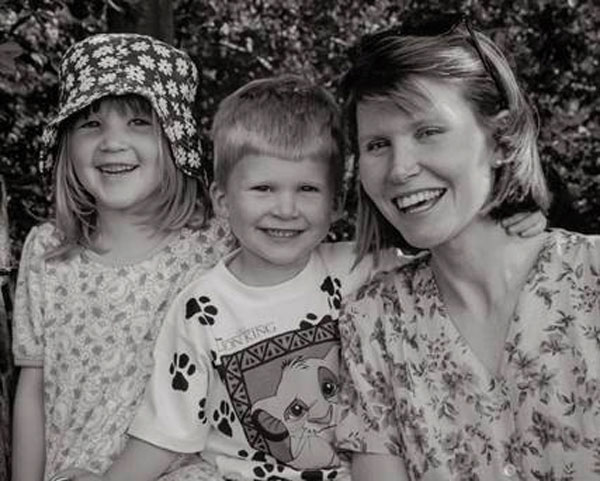
Born in Brighton in 1989, she enjoyed a childhood so idyllic that listening to her talk about it is a little like chomping on candyfloss. “I was really fortunate, I had a normal, very standard upbringing. I’ve got a supportive mum and dad who are always just lovely and we just always did lovely things as a family.”
Her father works in finance; her mum is a nurse in a local GP’s surgery. “He comes home and has lunch every day with my mum and then cycles back to work,” she says. “I’ve also got a younger brother, Tom. Tom and I have always got on well, we had the usual sort of teenage sibling rivalry but now we get on brilliantly.”
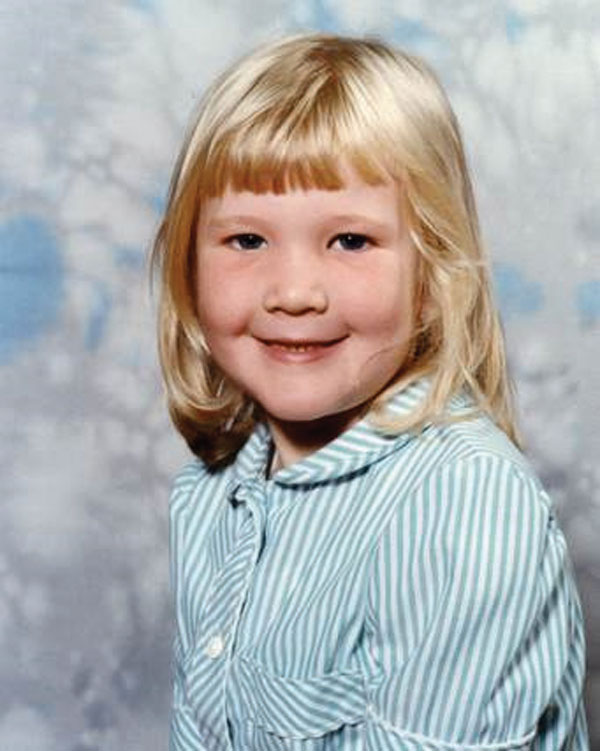
Shaw went to a local state primary before transferring to the independent girls’ school, Brighton and Hove High School. Her year group was small, with just 30 pupils.
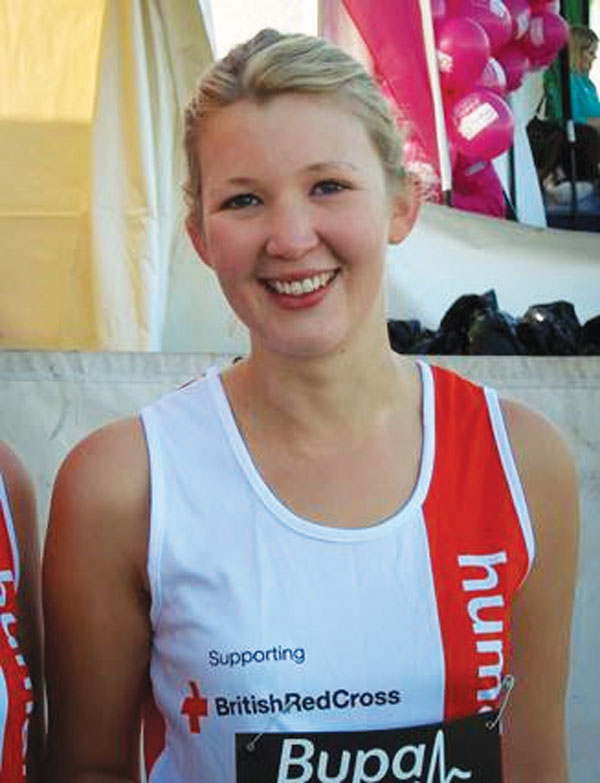
She emphasises how safe it felt. “I loved it. I had a really nice group of friends. You felt like you could go to your teachers and ask for help . . . I always felt safe and comfortable.”
It’s noticeable how often Shaw mentions security. In the TV show, she did the same – referencing her classroom as a safe space and trying hard to show vulnerable students that she cared.
By the time she explains how she moved from school to studying at Royal Holloway, a university in pleasant surroundings on the outskirts of London and not too far from home, it’s easy to get the impression that she doesn’t deal well with change.
And then she drops a clanger. She didn’t go straight to university. Instead, at 18, she backpacked the world with a friend. “We flew into Thailand, went all the way down through Malaysia and into Singapore, then hopped over to Australia, New Zealand, Fiji. Then we came home.”
In fact, Shaw has gadded all over – sometimes with friends, sometimes alone. On a recent escapade she backpacked on her own around Mexico and Guatemala. During another, she volunteered at a turtle conservation centre on the Pacific Coast.
On one trip to the US, she and her friends bought a battered 4×4 in such a bad state that they couldn’t stop to sightsee in case it broke down. “We were driving through this beautiful national park and were, like: ‘We can’t stop! We can’t stop until we get to a repair shop, because if we stop it won’t start again’. So we had to just drive through it.”

Her love of geography is rooted in these experiences. “I like having that culture shock feeling. You feel a bit uncomfortable and you don’t really know what you’re doing, and it takes a couple of days, but then you get on with it and enjoy it.”
Perhaps it was that feeling that prompted Shaw in her final year at university to apply for Teach First, the programme that places graduates into schools with high numbers of pupils from poorer backgrounds and trains them on-the-job.
“I knew I wanted to do something where I was working with people, and I always wanted to do something to help people. I can’t just sit in an office, I’d go out of my mind, I’d be so bored. Teach First really appealed because it gave me a real sense of purpose.”
She nevertheless admits to being naïve about the realities of teaching in a tough part of London. “But I’m glad I was naïve because I think if I wasn’t, I wouldn’t have applied.” Why not? “Because it’s hard.”
Within weeks of beginning, there was a brawl between two opposing gangs that had congregated at the school. Shaw was told to grab students, get into a classroom and lock the doors. “We just had to sit in there and wait with no real idea of what was going on outside. I was terrified. I went back home on the tram that night back to Clapham and called my mum, crying. It was just so alien to me, and it was such a shock.”
With time and effort, she developed her teaching skills and, even when shaken, has always loved the job and describes her gratitude to the supportive staff around her.
At the end of her first year, the producers of the Tough Young Teachers approached her to be a participant. After talking it through with friends and family she decided to go for it. “It’s not like it was prime time BBC One,” she giggles.
Despite being on BBC Three, the show had a following of 3 million and became the channel’s most-watched show in its history.
Shaw seems unaffected by her mini-celebrity; having been recognised only a handful of times and always greeted positively. But an enigma remains. How does a person for whom safety is so vital find themselves alone with a backpack in South America, or teaching in a school where gangs batter each other?
“Maybe the reason why I’ve wanted the danger is because I see everything around me as very secure, very routine and very lovely.” She recalls how generations of her family have always stayed in Brighton.
“I wanted to break away from that a little bit,” she says, with a hint of excitement. “And I have. I’m really really glad I have.”
What is your favourite book?
To Kill a Mockingbird. I read it when I was younger. Does everyone say that? I also liked A Thousand Splendid Suns. I like that they are about real-life things.
What are you most grateful for?
A supportive family and a good set of friends.
What would you do if you were invisible for a day?
I love people watching so I would love to be a fly on the wall in a really silly place – like a big department store at Christmas so I could see the chaos when they are setting it all up.
What is the most important phone call you’ve ever received?
Probably when I got on to Teach First; it started such a huge chain of events. I was in a lecture and I could feel my phone. It was a number that I didn’t recognise, so I walked out because I guessed it was Teach First. And on the back of that call I’ve been on TV and watched by 3 million people – that would never have happened otherwise.
If you could go back to any era in history, when would it be?
The 50s, with post-war excitement, brass bands and people learning to swing dance. Everything was being rebuilt and there was a new lease of life. It sounds like fun.
Who are your role models?
My inspirations are people that I’ve worked with. My former headteacher was a big role model. I looked up to his principles and values, and his heart was always in the right place. Every child had a chance, and a chance, and a chance – because he knew that because of where we were, if we got rid of a child he or she was doomed.


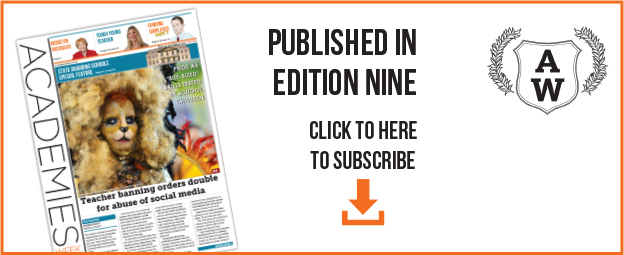




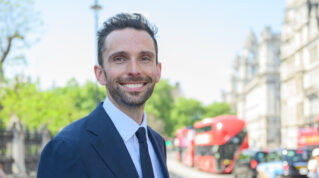






Your thoughts